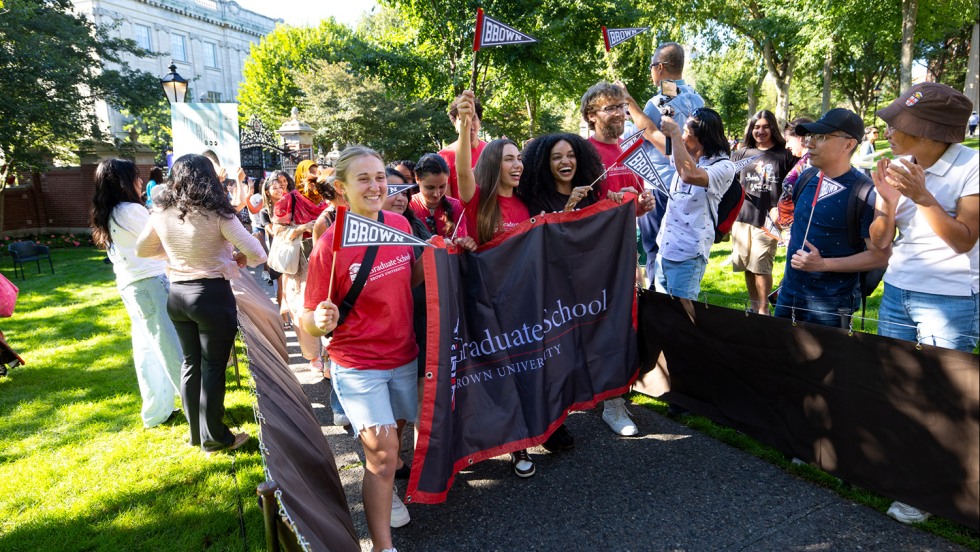In remarks titled “Curiosity, courage and conviction: Your Brown journey to a healthier world,” Jha shared his experiences as a physician and public health leader and urged the next generation of Brunonians to work across differences to advance the health and well-being of humankind.
“You just walked through Van Wickle Gates: Your first step on your magical journey at this extraordinary University,” Jha said. “Magical because Brown has the power to transform, and that transformation of the Brown education begins today.”
Jha called on students to embrace deep inquiry: “the most powerful tool in human history” for promoting health and well-being. Inquiry is key to addressing an era of polarization that’s impeding progress to solve society’s greatest challenges, from vaccines to climate change, he said. As a public health leader during a global pandemic, Jha said he listened to people across the political spectrum and learned something important.
“I learned that what we have in common is so much deeper and more meaningful than that which divides us, and importantly, I learned we can reduce polarization that is so toxic to our society,” Jha said. “It’s not going to be easy. But it is doable.”
Jha reminded the incoming students that humans have been on the planet for about 300,000 years, but for nearly that entire time, the average human life expectancy was only around 30. Even in 1900, the global life expectancy was 32, he said. Just over a century later, it has doubled to 72.
Through courage, humility and conviction, humans started asking different questions with an acknowledgement that they didn’t have all the answers, like the curious, pioneering 19th-century physician who first conducted an experiment to see whether it would save lives if doctors washed their hands “and found it did — by a lot,” Jha said.
“This new approach has lots of names… I call it the scientific method, others call it the creative process, [and] some just call it innovation,” Jha said. “This new approach sparked an intellectual revolution that has reshaped everything… What drove those gains are the same things that are going to drive your Brown experience.”
Across the academic disciplines, from science and medicine to history and the arts, a commitment to curiosity, rooted in humility and fueled by courage and conviction, is what will ameliorate polarization and power transformation, Jha said.
“With [Brown’s] Open Curriculum and its culture of academic exploration, you don’t really have to know which direction your inquiry will take you — you are not beholden to well-established paths…” Jha said. “Know that inquiry makes you part of a proud tradition that has changed the course of human history… And it is that commitment to inquiry that makes Brown so special. Magical, actually.”
